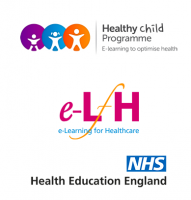Introduction to Common Symptoms and Help-Seeking



In this session we will consider the types of symptoms that young people experience, and the choices that they make about where to go for help. Other sessions in the module consider some of the symptoms and conditions in more detail.
Learning Objectives
By the end of this session you will be able to:
- List common physical symptoms that young people experience and the frequency with which these occur 
- Identify common sources of help to which young people go 
- Describe some of the factors that influence symptom perception and presentation 
- Recognise that psychological and social factors may be more important than physical illness in the development of physical symptoms in young people
Although teenagers have traditionally been considered to be a healthy population with few health concerns, when asked they actually report a wide range of symptoms and anxieties about their health. Some of these are presented as problems to health professionals whilst others are not.
Dick Churchill is a GP in Nottingham and former Associate Clinical Professor at the University of Nottingham. He has both clinical and academic interests in the health of young people and in mental health issues. He is a member of the RCGP Adolescent Health Group and a founder of the Association for Young People’s Health.

- Acute Medicine | Cardiorespiratory arrest 02 knowl...
- Posted By eIntegrity Healthcare e-Learning
- Posted Date: 2024-12-27
- Location:Online
- This session looks at the diagnosis and management of an accidental hypothermic patient presenting either with or without cardio respiratory arrest, and common complications. The initial rescue and recovery is not covered in this session.
- Introduction to Female Genital Mutilation/Cutting/...
- Posted By True Relationships & Reproductive Health
- Posted Date: 2024-12-27
- Location:Online
- This course gives an introduction to Female Genital Mutilation/ Cutting/ Circumcision (FGM/C) in Aus...
- Acute Medicine | Chest pain 01 knowledge A
- Posted By eIntegrity Healthcare e-Learning
- Posted Date: 2024-12-27
- Location:Online
- This session provides an overview of ischaemic electrocardiograms (ECGs) in acute medicine. It is not intended to teach how to interpret ECGs, but to understand the underlying coronary anatomy relative to their interpretation.
- Acute Medicine | Cardiorespiratory arrest 02 knowl...
- Posted By eIntegrity Healthcare e-Learning
- Posted Date: 2024-12-27
- Location:Online
- This session explains the pathophysiology and aetiology of hypothermia in adult patients and the way they present.
- Acute Medicine | Breathlessness 18 knowledge B
- Posted By eIntegrity Healthcare e-Learning
- Posted Date: 2024-12-27
- Location:Online
- This session describes how to evaluate, investigate and plan the management of a patient presenting with breathlessness due to anaemia.








